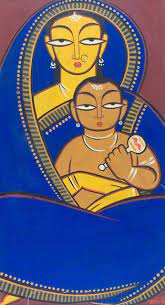
Editorial
Celebrating the Child & Childhood… Click here to read.
Special Tributes
An excerpt from Rabindranath Tagore’s ‘The Child‘, a poem originally written in English by the poet. Click here to read.
Vignettes from an Extraordinary Life: A Historical Dramatisation by Aruna Chakravarti… Click here to read.
Conversations
A conversation with the author, Afsar Mohammed, and a brief introduction to his latest book, Remaking History: 1948 Police Action and the Muslims of Hyderabad. Click here to read.
A conversation with Meenakshi Malhotra over The Gendered Body: Negotiation, Resistance, Struggle, edited by Meenakshi Malhotra, Krishna Menon and Rachana Johri and a brief introduction to the book. Click here to read.
Translations
The Monk Who Played the Guitar, a story by S Ramakrishnan, has been translated from Tamil by T Santhanam. Click here to read.
The White-Coloured Book, a poem by Quazi Johirul Islam has translated from Bengali by Professor Fakrul Alam. Click here to read.
Indecisiveness has been written and translated from Korean by Ihlwha Choi. Click here to read.
Tagore’s 1400 Saal (The Year 1993) has been translated from Bengali by Mitali Chakravarty. Click here to read.
Nazrul’s rejoinder to Tagore’s 1400 Saal has been translated from Bengali by Professor Fakrul Alam. Click here to read.
Poetry
Click on the names to read the poems
Ron Pickett, Prithvijeet Sinha, George Freek, Sutputra Radheye, Caroline Am Bergris, Thoyyib Mohammad, Kumar Bhatt, Patricia Walsh, Hamza Azhar, John Grey, Papia Sengupta, Stuart McFarlane, Padmanabha Reddy, Ryan Quinn Flanagan, Jee Leong Koh, Rhys Hughes
Poets, Poetry & Rhys Hughes
In His Unstable Shape, Rhys Hughes explores the narratives around a favourite nursery rhyme character with a pinch of pedantic(?) humour. Click here to read.
Musings/ Slices from Life
Nitya Amalean writes of why she chooses to be an immigrant living out of Sri Lanka. Click here to read.
Mohul Bhowmick travels to the tea gardens and hills of Wayanad. Click here to read.
Musings of a Copywriter
In Visiting Cards & Me…, Devraj Singh Kalsi ponders on his perspective on the need and the future for name cards. Click here to read.
Notes from Japan
In Kyoto: Where the Cuckoo Calls, Suzanne Kamata introduces us to Kyoto. Click here to read.
Essays
Peeking at Beijing: The Epicentre of China
Keith Lyons travels to the heart of Beijing with a sense of humour and a camera. Click here to read.
To Be or Not to Be or the Benefits of Borders
Wendy Jones Nakanishi argues in favour of walls with wit and facts. Click here to read.
Ravi Shankar gives a photographic treat and a narrative about Langkawi. Click here to read.
Stories
Heather Richards’ Remarkable Journey
Paul Mirabile journeys into a womb of mystery set in Thailand. Click here to read.
Neeman Sobhan gives us the story of a refugee from the 1971 Bangladesh Liberation War. Click here to read.
Farouk Gulsara narrates a story set in 1960s Malaya. Click here to read.
Sohana Manzoor gives us surrealistic story reflecting on after-life. Click here to read.
Book Excerpts
An excerpt from Dr Ratna Magotra’s Whispers of the Heart – Not Just A Surgeon: An Autobiography. Click here to read.
An excerpt from Manjima Misra’s The Ocean is Her Title. Click here to read.
Book Reviews
Somdatta Mandal reviews Indian Christmas: Essays, Memoirs, Hymns, an anthology edited by Jerry Pinto and Madhulika Liddle. Click here to read.
Christopher Marks reviews Veronica Eley’s The Blue Dragonfly: healing through poetry. Click here to read.
Basudhara Roy reviews Kuhu Joshi’s My Body Didn’t Come Before Me. Click here to read.
Bhaskar Parichha reviews Permacrisis: A Plan to Fix a Fractured World by Gordon Brown, Mohamed El-Erian, Michael Spence, Reid Lidow
.
Click here to access the Borderless anthology, Monalisa No Longer Smiles
Click here to access Monalisa No Longer Smiles on Kindle Amazon International




